MS REHABILITATION AT THE CENTRE OF RUSSIA
At the Government Institution of the Samara region ‘Rehabilitation Center for people with neurological conditions ‘Bereza’, qualified specialists in rehabilitating neurological impairments efficiently help people with multiple sclerosis to prolong their employment opportunities and self-maintaining capacity, as well as ensure PwMS’ social life.
The Samara Multiple Sclerosis Society (an All-Russian MS Society branch) was a co-founder of the Rehabilitation Center.
Rehabilitation of people with MS
Annually, some 1000 people make use of in-patient rehabilitation courses at the Center. 20% of them are people with multiple sclerosis (PwMS), where persons aged 25-45 make 60%.
Rehabilitation of people with multiple sclerosis is different in that this kind of rehabilitation aims at supporting patients and is carried out, while disabilities in them grow.
The main goals of the rehabilitation support in multiple sclerosis are:
1. Adaptation to the steady progress of neurological deficit, maximum prolongation of PwMS’ employment opportunities and self-maintaining capacity, ensuring their social life;
2. Prevention of deuteropathies of the neurological condition (bedsores, atrophy and contractures, osteoporosis, blood and lymph circulation dysfunctions, urinary tract infections);
3. Improvement of the health-related quality of life as the result of the arrangements above.
Support rehabilitation can only be possible through compensating for symptoms of the disease, such as:
- Motor activity disorders (paralyses, spasticity, coodinatory dysfunctions often with tremor complications, vestibular disorders);
- Fine motor activity disorders in fingers;
- Sensitivity disorders;
- Impairment of vision;
- Fatigue;
- Pelvic floor disorders;
- Swallowing and speech disorders;
- Emotional perception disorders;
- Cognitive disturbances;
- Chronic pain syndrome.
Center staff
To provide services to patients, the Center is staffed with neurologists, therapists, rehabilitation professionals, exercise therapy professionals, logopedists, nursing workers, massage professionals, physiotherapeutic room professionals, psychologists, social work professionals, social workers.
Methods of rehabilitation
Physical rehabilitation includes a complex of exercise therapy measures to reduce spasticity, strengthen muscles, improve coordination of movements and employ personal orthopedic appliances (cane, railing, stroller).
The Center is keen to get patients socialized, which is part of rehabilitation. Patients are grouped according to impairments they have. The Center professionals ensure an optimum regime for motion behavior for the patients; they organize recreational activities in special facilities, while employing auxiliary equipment.
For rehabilitation, mechanotherapy includes appliances, such as exercycle, multifitness ‘Cetler’ (multifunctional training device to accustom all grounds of muscles), run belt tracking, rowing training device (to accustom the muscles of upper pectoral arch and lower extremities, to strengthen the back and premum abdominale muscles), ministepper, duplex and triplex (appliances to carry out multipurpose exercises) serve to develop patients’ physical capabilities.
A professional on exercise therapy supervises patients with frank motor impairments individually. Wheelchair users do exercises standing on foot leaning onto parallel bars to enable them to partly restore independent mobility skills, strengthen back muscles, improve bearing. Exercises standing on foot are also necessary to regulate blood pressure, amend muscle blood supply in lower extremities and alleviate stagnant conditions.
Professionals in the Center are successful to fight sedentary developments in movable joints and atrophy in muscles; with the use of the appliance ‘Deluxe’, ‘Canavel’ table, Grahamizer they efficiently rehabilitate patients with mobility impairments in lower extremities; to rehabilitate patients with coodinatory dysfunctions and for the purpose of strengthening musculoskeletal system they use the balance platform Biodex and fitness training device Huber.
Physiotherapeutic exposure is an important technique that employs magneto-therapy, laser therapy, electrical stimulation, extremely high frequency therapy, ultrasound and other techniques in order to influence the body both stimulatingly in general and locally to reduce muscle tone, improve blood supply and tissue trophism, alleviate pain syndrome, normalize pelvic floor functions, and so on.
Massage options are manual, vacuum, vibratory massage by GK-3 appliance, Nuga Best massage bed, massage chair.
It is important for patients to correct speech and swallowing disorders (dysarthria). This often causes social dysadaptation as patients get fatigued from speaking and would rather avoid it. In the first place, center professionals engage in normalizing speech tempo and rhythm, restoring powers, voice sonority. To normalize the vocal apparatus they employ massage for articulation and mimic muscles, complexes of articulation gymnastics and a complex to correct hypotonic impairment in the larynx.
Depression is a common condition in people with MS. Psychologists and social work professionals deal with psychological disorders that impede rehabilitation arrangements, as well as they work on adequate attitudes to rehabilitation results in the Center along.
Complimentary therapy
Phytotherapy is an efficient complementary therapy to the medical one. Teas of sedative, normalizing blood pressure, vitamin, laxative etc purpose are quite a success with the patients.
A program for family and friends
In order to educate the family and friends of people with disabilities there is the Care School, where Center staff will normally consult on issues like prevention of complications having to do with restricted mobility, talk and discuss the goals and results of rehabilitation.
In conclusion
Comfortable and adapted conditions, harmonious workings of the Center personnel, fruitful cooperation between staff and guests are at work to provide complex rehabilitation, that is to repair gone motor functions in the patients, enhance their social activity, get them to enjoy life again and be useful for their family and community.
The Center welcomes
A wheelchair accessible facility, the Rehabilitation Center ‘Bereza’ welcomes patients with no medical and social counter-indications to get rehabilitation services.
To contact us:
You can contact the Center through, Pavel Zlobin, Vice-president of the All-Russian MS Society at: Адрес электронной почты защищен от спам-ботов. Для просмотра адреса в вашем браузере должен быть включен Javascript.
Rehabilitation Center ‘Bereza’ was formally registered on August 18, 2003.
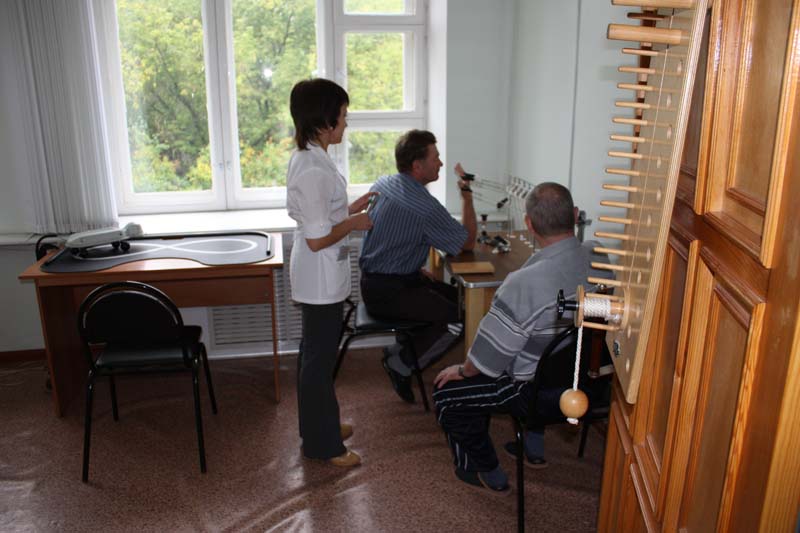 |  | 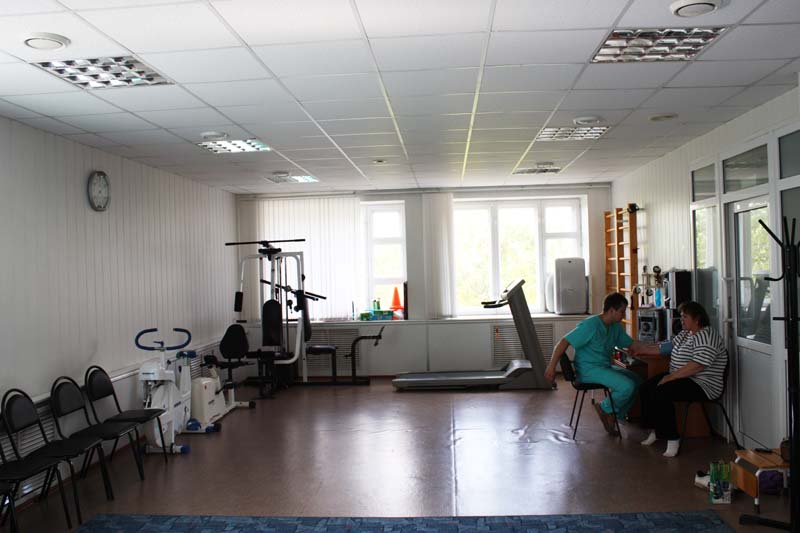 |
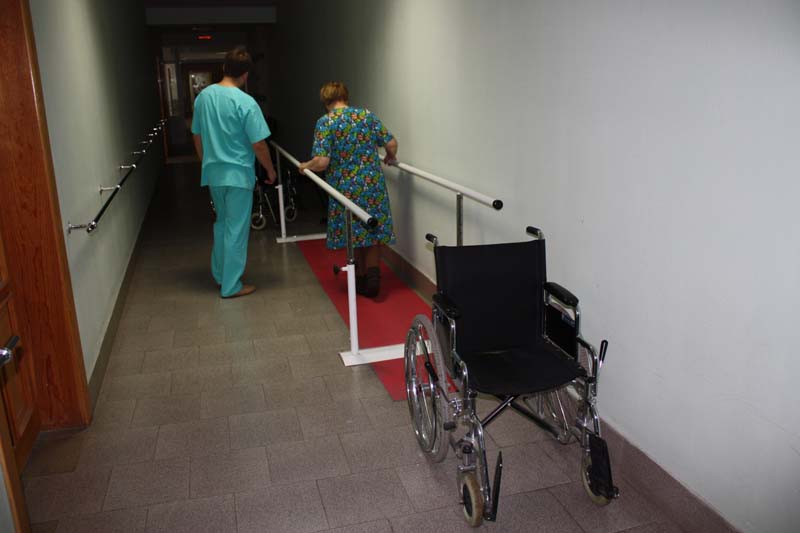 | 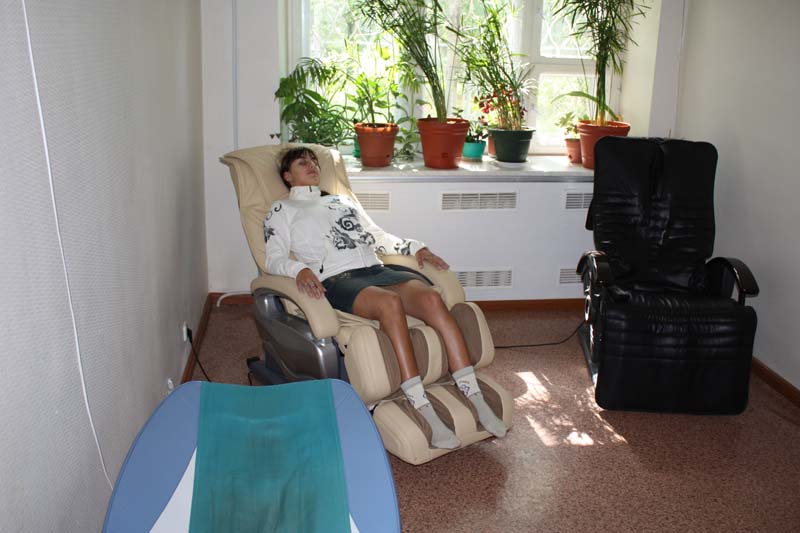 | 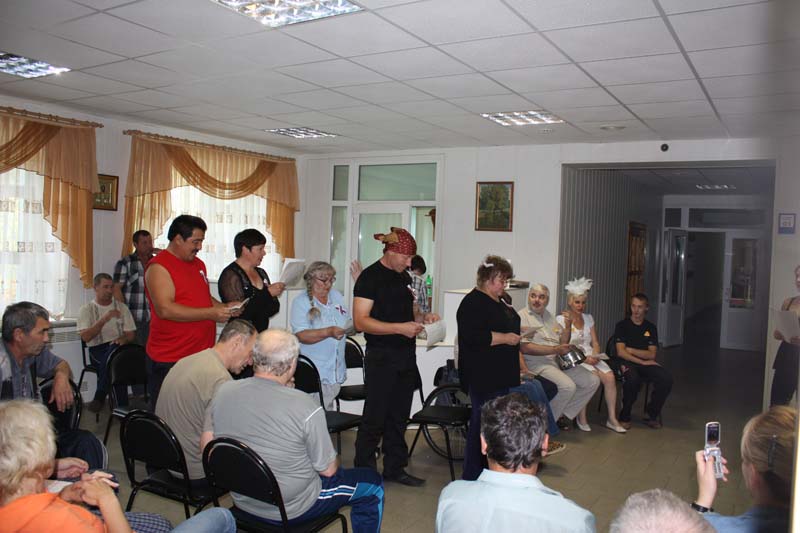 |


